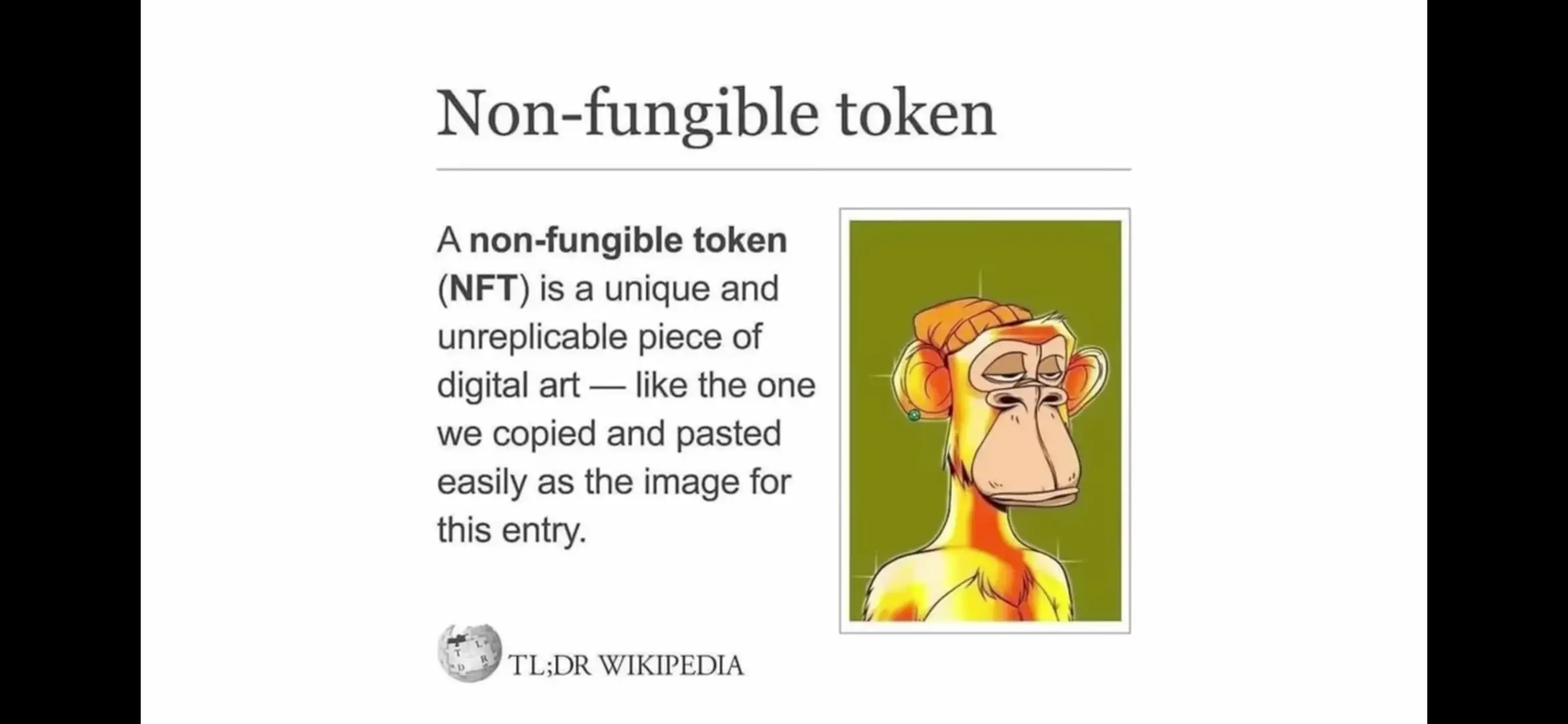this post was submitted on 09 Aug 2023
1469 points (95.3% liked)
Dank Memes
6157 readers
1 users here now
This is the place to be on the interweb when Reddit irreversibly becomes a meme itself and implodes
If you are existing mods from r/dankmemes, you should be mod here too, kindly DM me on either platform
The many rules inherited from
- Be nice, don't be not nice
- No Bigotry or Bullying
- Don't be a dick!
- Censor any and all personal information from posts and comments
- No spam, outside links, or videos.
- No Metabaiting
- No brigading
- Keep it dank!
- Mark NSFW and spoilers appropriately
- NO REEEEEEE-POSTS!
- No shitposting
- Format your meme correctly. No posts where the title is the meme caption!
- No agenda posting!
- Don't be a critic
- Karma threshold? What's that?
founded 1 year ago
MODERATORS
you are viewing a single comment's thread
view the rest of the comments
view the rest of the comments

The thing is that blockchain technology is actually pretty impressive and has potential to change society. Prove-able digital ownership is massive, but what it is currently used for is literally just a scam. Crypto is too volitile to use as a currency, NFTs are AI generated slop (even though the term NFT should be used in a wider context) and blockchain apps and the general environment are in its infancy, being generous. Until more developments it is either a scam, or a lottery.
On every single thread about crypto on the Internet, someone has to make this claim. At some point, someone somewhere has to actually have a real world example of this technology being used in a useful and novel way that isn't easier and cheaper with other technology. It isn't happening, it's been over 10 years, when can we stop using the "in its infancy" argument?
Digital proof of ownership. I dont think you realise how important that could be. Right now NFTs are AI generated PNGs, but if it has its chance it could be fully functional digital paperwork. It doesnt matter if someone can right click save the deed to a house if we know which ones the "real" one. Only one example. And sure the tech has been around for ~10 years but we both know its REALLY been around for ~4. Maybe its going to stay as one big ball of "potential" forever, which seems more and more likely by the day. In a few years time if nothing comes of blockchain tech except more headlines of idiots losing money ill be ready to sign the whole thing off.
Imagine people having the deed to their house on the blockchain and then a scammer transferring ownership through a scam. Imagine a real estate agent writing into the smart contract of your house purchase that they get to also take a percentage of when you sell the house later even if they're not otherwise involved in that sale. The possibilities are endless! Of course you can avoid these things if you're technically-knowledgeable and can understand the underlying code, but most people aren't. Heck, even technically-inclined people have some degree of blind trust. Do you read the source code of all the open source software you run?
Thinking these would only be blockchain issues is naive or dishonest. People sign weird contracts all the time (have you ever read a EULA that you've agreed to? Those things are wild), people are falling for nigerian prince schemes RIGHT NOW in the year of our lord 2023, and modern day identity theft is stealing homes without the blockchain. Having an immutable ledger would help rewind things when they go wrong if anything.
People sign weird contracts but those contracts are written in a human language. What do you think is more likely? The average person being able to read a contract in their native language or the average person being able to read a contract written in whatever the scripting language is provided by some random smart contracts system?
Yes, people do fall for scams all the time, which was my point. With our existing systems, there are at least ways to undo those transactions. With blockchain you're out of luck, unless they build in mechanisms to reverse transactions, but then you have the problem of figuring out what transactions are allowed to be reversed and who can reverse them and eventually you end up with a trust-based system.